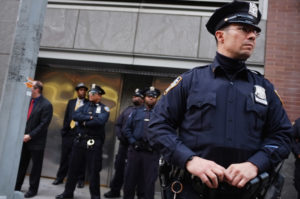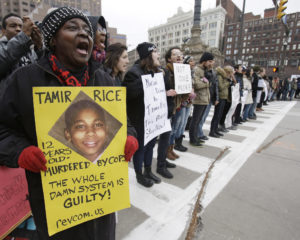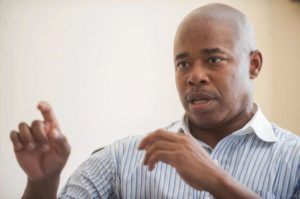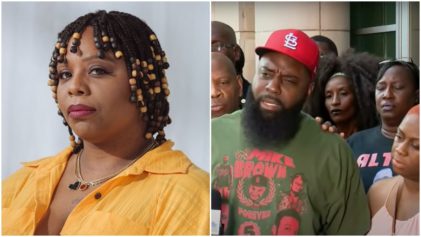
The events in Ferguson and Staten Island, along with the grand jury decisions not to indict, have created the perception in many minds that police forces are filled with nasty, trigger-happy racists, just waiting to put another Black male in their targets.
But officers say the forces shouldn’t be separated from America itself; American society as a whole is filled with racist people.
“We have a real racial, homophobic, anti-Semitic, women issues in our society… those same schisms that exist in society exist in the same pool of officers,” Brooklyn Borough President Eric Adams said to ABC News.
Adams, who is African-American, was an NYPD cop for more than two decades before he transitioned into politics. Adams said that there is a common misconception that putting on a uniform somehow makes officers different breeds of people.
“All of a sudden the uniform comes over the head and you become this angel?” Adams asked rhetorically.
As communities across the globe have seen, that definitely isn’t the case.
Adams said race plays a major role in the force and officers have opened up to him about it in the past.
He recalled one time that an officer blatantly said he treats white suspects differently than Black ones.
“Another officer told me – and he was a good officer – he said ‘Eric, I’m going to be honest with you: when I see a Black guy with a gun I’m going to take precaution for myself,’” Adams told ABC News. “If I see a white guy with a gun I’m going to take precaution for myself and for him.”
Another officer revealed that when it comes to racial biases, white officers aren’t the only ones that are guilty of receiving special treatment.
A former NYPD sergeant claimed that he saw a Black colleague outside the courthouse after the colleague fatally shot a suspect for the third time.
“He said, ‘That’s the good thing about being a Black man in the NYPD – I can pretty much shoot whoever I want. If you were involved with the shootings that I’ve been involved with, you’d be in a lot of trouble,'” former Det. Sgt. John Paolucci said to ABC News. “That always stuck with me.”
Paolucci said that conversation happened back in 1997.
The conversation about how race impacts law enforcements is not a new one. But it has resurfaced with a new life after a recent string of unarmed Black men being killed by officers and the lack of grand jury indictments that would hold them accountable for their actions.
Many police agencies around the country have moved to try to implement changes in police training and recruiting in an effort to reduce the amount of racially charged incidents, especially ones that steal the lives of unarmed Black men.
But the officers believe it will be a long road to weeding out not only racism in the force but also incompetent officers who resort to deadly force too quickly.
“I like to use the analogy of alcoholism,” Adams said. “I believe our agency (the NYPD) has been intoxicated with police abuse and we now must take the first steps towards sobriety.”
He added that it “must be strategically done.”
“Anyone who went through AA will tell you, you still live day by day… you have to constantly have a buddy system to reinforce the partner in that car,” he said.

Back in the 1990s Sgt. Paolucci was working in the south Bronx, a largely Hispanic area, along with other neighborhoods in Manhattan.
For a decade, Paolucci told ABC he patrolled those streets and always saw something different than what the average passerby saw.
“If you looked around at some of the playgrounds and parks on a hot summer day – these places are full of criminals, but when you spend time in that community you realize what a small percentage that really is,” he said.
Neighborhoods that were being feared by newer officers weren’t so scary to the former sergeant because he knew the true heart of the community wasn’t the small group of criminals that could be spotted here or there.
Instead, he remembered the older residents who often faked emergency calls so that officers could walk them to their mailboxes or escort them down stairwells—duties that might be annoying but are actually the kind of service officers should be eager to provide.
He said some people simply aren’t meant to be officers and it’s up to the agency to weed those people out before they are armed with a gun and a badge.
“Listen, are there people that shouldn’t be police officers all across the country? Absolutely,” he said. “But that means we need to look at how we recruit them, how we train them and how we discipline them.”



